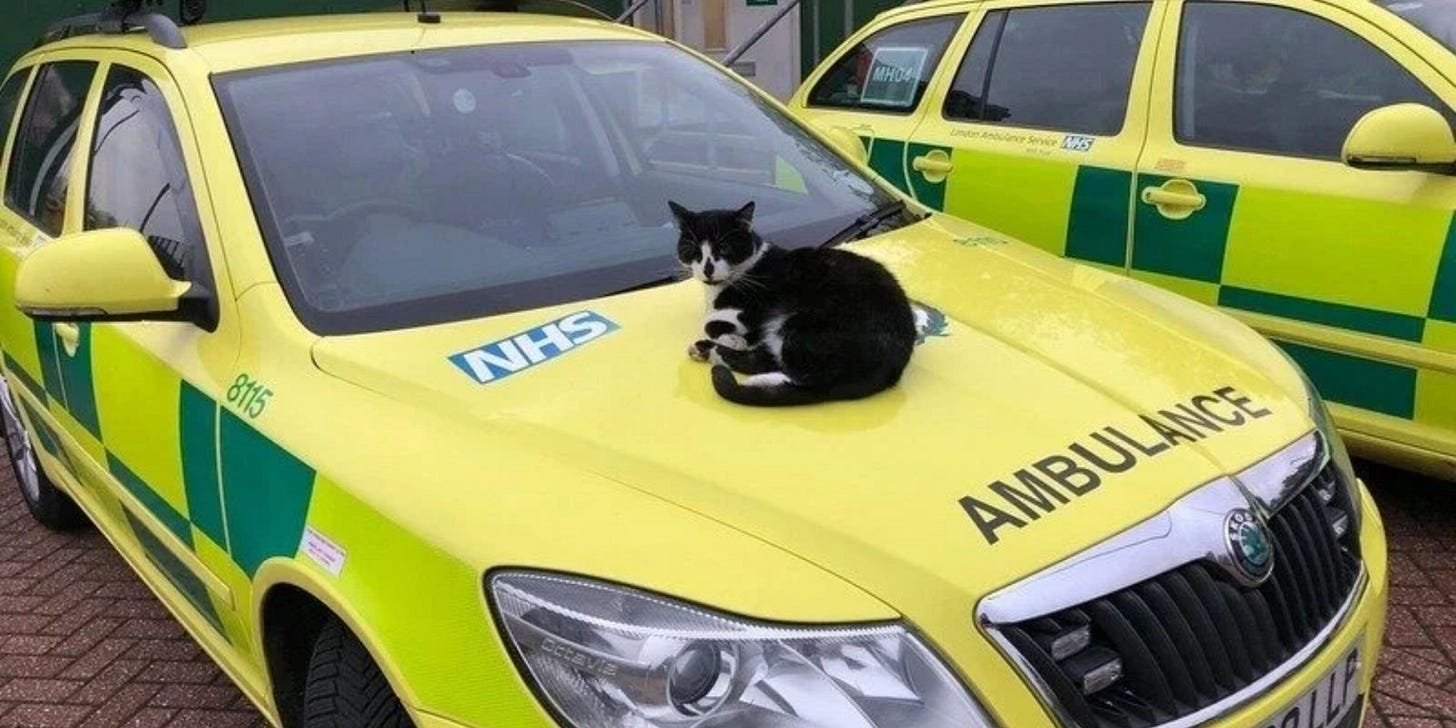Saving 'Defib' Was About More Than Just Saving a Cat
The Fight to Save Defib Highlights the Emotional Support Our Emergency Workers Desperately Need
The story of Defib, the beloved station cat of Walthamstow Ambulance Station, touched the hearts of thousands. What started as a campaign to prevent an elderly cat from being evicted evolved into something much bigger: a movement that shed light on the pressures faced by the men and women working in the emergency services. These brave individuals, who endure some of the most horrific situations imaginable, found support not only for Defib but for themselves as well. It became clear that saving Defib was about more than just saving a cat—it was about standing with the people who save lives.
The Timeline of Events
Defib had been a part of Walthamstow Ambulance Station for 16 years, offering comfort and companionship to the hardworking ambulance staff who encountered him on their shifts. But his fate took a turn when a new station manager decided to rehome him, citing safety concerns due to Defib's age and the potential risk of being run over by the ambulances. The manager also noted that some new staff members had cat allergies, which made it difficult for them to use the station's facilities.
This decision didn't sit well with staff or the public. Defib had been a fixture at the station for so long, becoming more than just a pet—he was a source of calm for emergency workers during the most difficult moments of their day. The staff launched a petition on Change.org, calling for Defib to be allowed to stay. The petition quickly gained traction, with thousands of people rallying behind the cause. Within a matter of days, 62,000 signatures were collected, and messages of support poured in from around the country.
A Reflection of the Struggles of Emergency Workers
Defib's situation struck a chord with people, not just because of the idea of an elderly cat losing his home, but because of what it symbolised for the staff at Walthamstow Ambulance Station. Ambulance workers, like all emergency service personnel, face unimaginable trauma on a regular basis. While many of us would be shattered by witnessing tragic events just once, ambulance crews are exposed to this reality every shift. For some, this relentless exposure to human suffering and death takes a heavy toll on their mental health.
Repeated exposure to traumatic incidents leaves a lasting mark on emergency workers. The emotional burden is immense, and people cope in different ways. Some leave the service, unable to continue in such a high-pressure environment. Others seek solace in speaking with colleagues, family, or friends. Tragically, some emergency workers find themselves overwhelmed by flashbacks and trauma, and some take their own lives.
For many, though, the brief moments spent with an animal like Defib can offer a vital respite. In an environment where split-second decisions mean life or death, a few minutes spent petting a cat, who offers unconditional companionship without judgement, provides an escape from the chaos. It's these small moments of peace that help staff reset and carry on, ready to respond to the next emergency call.
Public Support for Defib and the Ambulance Staff
Keep reading with a 7-day free trial
Subscribe to ESN Report to keep reading this post and get 7 days of free access to the full post archives.

